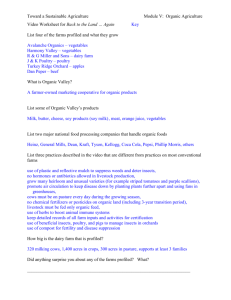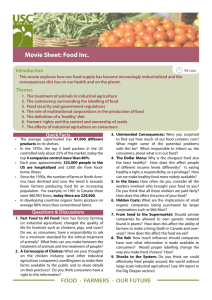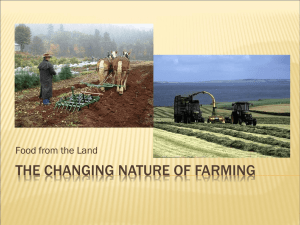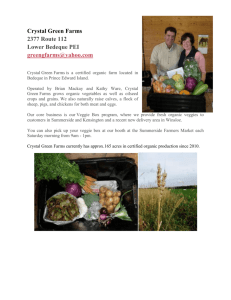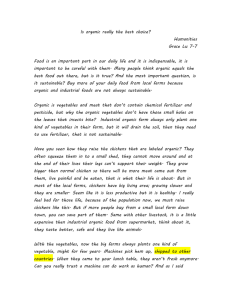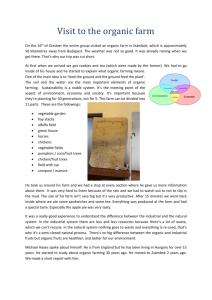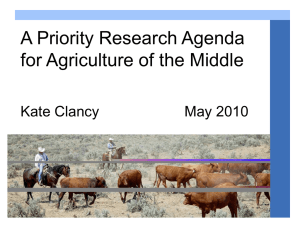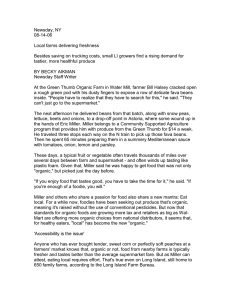SAMPLE LETTER — click here
advertisement
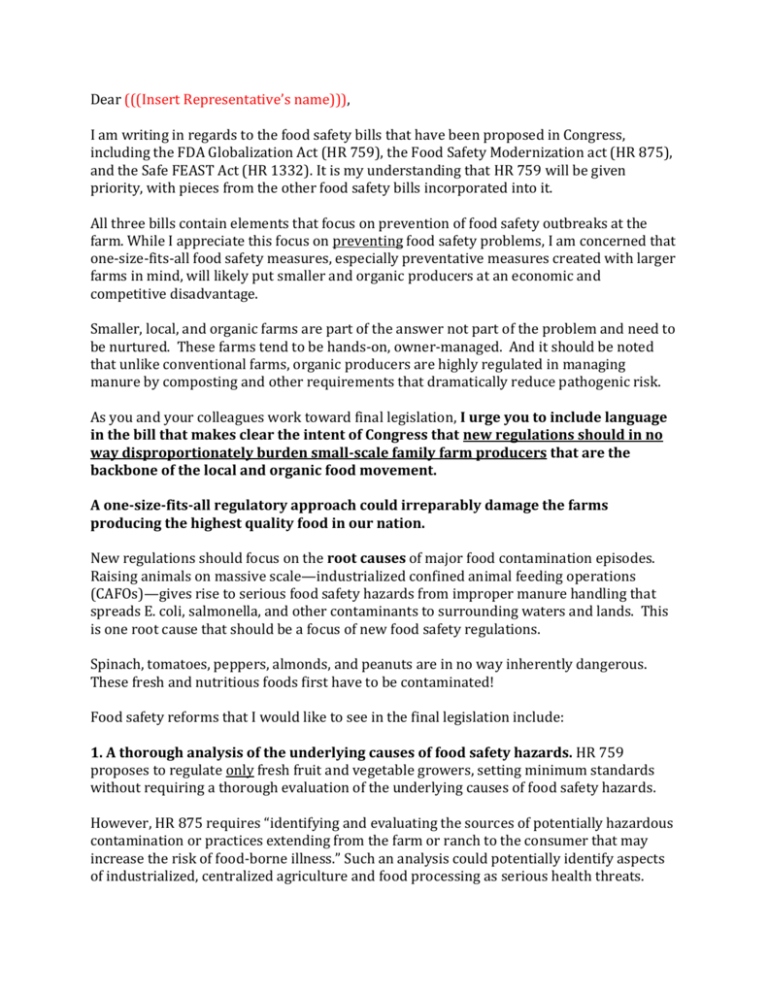
Dear (((Insert Representative’s name))), I am writing in regards to the food safety bills that have been proposed in Congress, including the FDA Globalization Act (HR 759), the Food Safety Modernization act (HR 875), and the Safe FEAST Act (HR 1332). It is my understanding that HR 759 will be given priority, with pieces from the other food safety bills incorporated into it. All three bills contain elements that focus on prevention of food safety outbreaks at the farm. While I appreciate this focus on preventing food safety problems, I am concerned that one-size-fits-all food safety measures, especially preventative measures created with larger farms in mind, will likely put smaller and organic producers at an economic and competitive disadvantage. Smaller, local, and organic farms are part of the answer not part of the problem and need to be nurtured. These farms tend to be hands-on, owner-managed. And it should be noted that unlike conventional farms, organic producers are highly regulated in managing manure by composting and other requirements that dramatically reduce pathogenic risk. As you and your colleagues work toward final legislation, I urge you to include language in the bill that makes clear the intent of Congress that new regulations should in no way disproportionately burden small-scale family farm producers that are the backbone of the local and organic food movement. A one-size-fits-all regulatory approach could irreparably damage the farms producing the highest quality food in our nation. New regulations should focus on the root causes of major food contamination episodes. Raising animals on massive scale—industrialized confined animal feeding operations (CAFOs)—gives rise to serious food safety hazards from improper manure handling that spreads E. coli, salmonella, and other contaminants to surrounding waters and lands. This is one root cause that should be a focus of new food safety regulations. Spinach, tomatoes, peppers, almonds, and peanuts are in no way inherently dangerous. These fresh and nutritious foods first have to be contaminated! Food safety reforms that I would like to see in the final legislation include: 1. A thorough analysis of the underlying causes of food safety hazards. HR 759 proposes to regulate only fresh fruit and vegetable growers, setting minimum standards without requiring a thorough evaluation of the underlying causes of food safety hazards. However, HR 875 requires “identifying and evaluating the sources of potentially hazardous contamination or practices extending from the farm or ranch to the consumer that may increase the risk of food-borne illness.” Such an analysis could potentially identify aspects of industrialized, centralized agriculture and food processing as serious health threats. 2. HR 759 should establish categories for food (processing) facilities to ensure that smaller businesses are not disadvantaged by one-size-fits-all registration fees. 3. The final bill should also determine categories for “food production facilities” (farms) — based on level of risk. These categories should differentiate between farms based on criteria including size and organic certification. A certified small-scale organic farm, as an example, selling its produce in the Community Supported Agriculture (CSA) model or through farmers markets or roadside stands should be regulated differently from a large-scale, conventional farm selling commodities to a national market. 4. Also, some small-scale farmers, including members of the Amish community, will find mandatory electronic record keeping requirements onerous and should be able to access alternatives, or be exempted due to scale. 5. At least one other separate piece of legislation, HR 814, would require a mandatory animal identification system (NAIS). Since the majority of all food contamination problems have emanated from processing, distribution, retailing, and food service, there is limited utility in requiring agricultural producers to go to the great expense of tracking each individual animal (any value from the system would mostly be applicable to animal health concerns, not human health). Since NAIS has caused a maelstrom of controversy in the farming community, Congress should debate this issue separately to avoid stalling the progress of critical food safety legislation. 6. Most importantly, the final bill needs to state clearly that food safety regulations should not interfere with any farmer’s ability to follow and comply with the regulations of the Organic Foods Production Act. Organic farmers are already audited and inspected on an annual basis. They already have a plan for their farm—an “organic system management plan.” The bill should specify that food safety regulations and food safety plans should not interfere with farmers’ existing organic plans. Thank you for considering my concerns, (((Your name))) (((Your address)))

